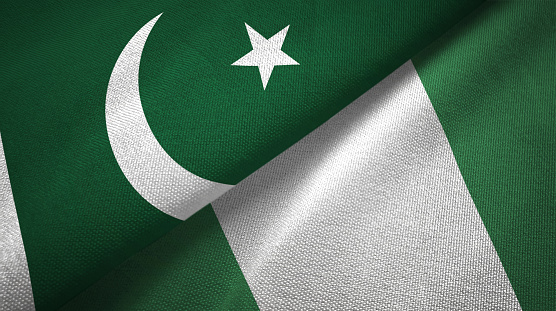A Webinar was held on 14th October, 2021 on “Nigeria Pakistan Relations and Future Aspirations” under the auspices of Karachi Council on Foreign Relations (KCFR). Chairman KCFR Ikram Sehgal hosted the session. The Plenary speaker was His Excellency Abioye Mohammed Bello, High Commissioner of Nigeria. The webinar was moderated by Commodore (Retd) Sadeed Anwar Malik, Secretary General and CEO KCFR.
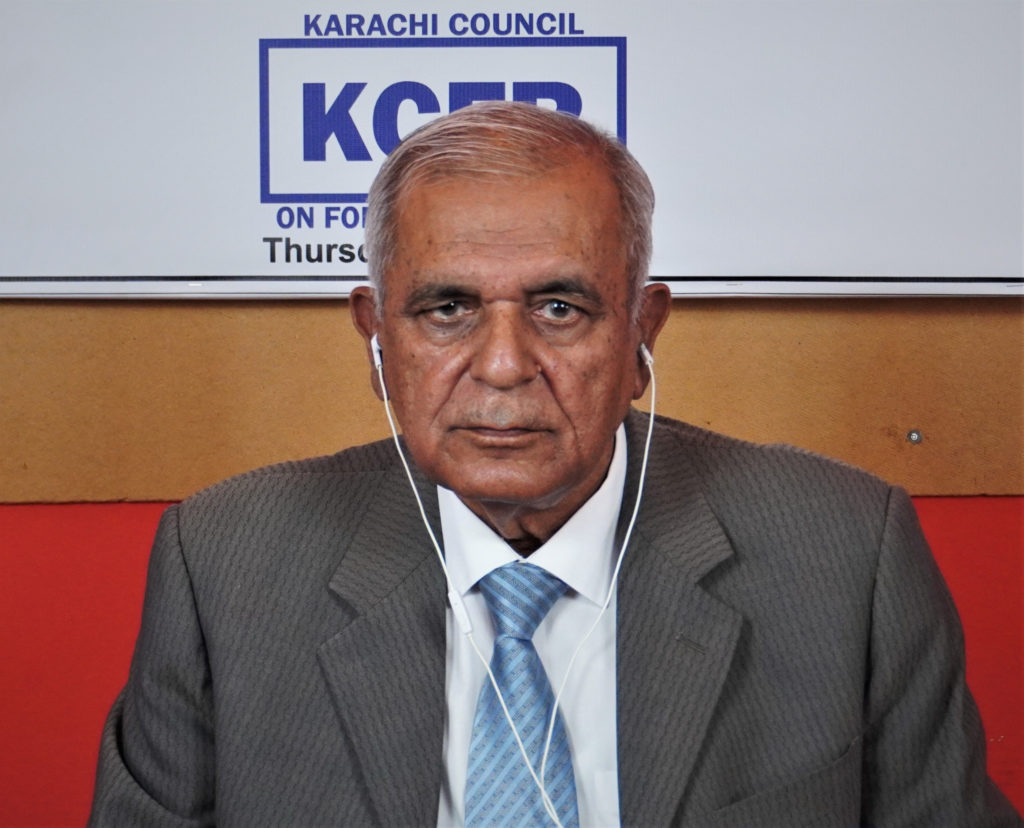
Commodore (R) Sadeed A. Malik: As-Salaam-O-Alaikum. Before we start the webinar and listen to His Excellency Abioye Mohammed Bello, I would like to introduce the Karachi Council on Foreign Relations (KCFR) to His Excellency and to some of the new members who are here today. KCFR is a prominent think tank at Karachi, it deliberates mainly in the fields of foreign relations and economic affairs. Our founding Chairman was former Chief Justice of Pakistan Mr. Justice Saeed Uz Zaman Siddiqui who was also the Governor of Sindh. After him the former Federal Minister and Governor of Sindh, Lt Gen Moinuddin Haider was our Chairman, followed by Mr. Liaquat Merchant, the grandnephew of Quaid-e-Azam Muhammad Ali Jinnah, former Deputy Attorney General of Pakistan and he is an advocate of the Supreme Court of Pakistan. He was followed by former Ambassador Mr. Shahid Amin who was followed by Admiral Shahid Karimullah, former Chief of Naval Staff and a former Ambassador. The present Chairman is Mr. Ikram Sehgal from 2019 to date, he is Chairman Pathfinder Group. KCFR’s Board of Governors are: Chairman Ikram Sehgal, Vice Chairman Khalid Mir, Senior Vice Chairman Ambassador Mustafa Kamal Kazi, Vice Chairman Mr. Javed Ashraf Hussain, Vice Chairperson Dr. Huma Baqai, Treasurer Mr. Kalim Farooqui and I am the Secretary General. Then we have the members of Board of Governors Air Marshal Riazuddin Sheikh, Mrs. Nadira Panjwani, Mr. Moin M. Fudda, Mr. Saleem Zamindar, Mr. Farooq Afzal, Dr. Shehzad Arshad, Mr. Arshad Saeed Hussain, Mr. Ifran H.A. Vazeer, Mr. Saeed Allawala and Mr. Hanif Pardesi.
We hold seminars and conferences and remain in dialogue with Pakistan Ministry of Foreign Affairs, institutions and think tanks. We have hosted a large number of Ambassadors, High Commissioners and delegates from abroad.
KCFR’s usual way of welcoming Ambassadors/ High Commissioners is start the day followed by breakfast as hospitality and at times the Honourable Consul Generals also joined us for this purpose. The time of interaction can be changed to lunch/hi tea/dinner to cater to convenience of the dignitaries.
We have signed Memorandums of Understanding with many countries such as Egypt, Nepal and China, Russia, Republic of South Korea, USA, India, Tunisia, Iran, Turkey, Ukraine and Azerbaijan. We have held many seminars/ webinar once with the President of Pakistan, then with the Finance Advisor to the Prime Minister of Pakistan, the Education Minister, the Finance Minister, also with the President of Kashmir, the Brazilian Ambassador, the Ambassador of Japan, the Portuguese Ambassador, the Russian Ambassador, the Advisor to the PM of Pakistan Mr. Moeed Yousuf and the Pakistan’s Foreign Minister Mr. Shah Mahmood Qureshi who spoke on 19th January, 2021 who spoke on the topic Reset of Pakistan US relations, just a day before the new President of the US was to take over.
Before I invite His Excellency to speak, I would like to share his Curriculum Vitae. He has done MSc in Political Science. He has acquired major training from workshops at the Crown Agents Training Institute in the UK, Center of Economic Initiative, Abuja, etc. His hobbies are reading and travelling. Thank you very much.
May I now request His Excellency Abioye Mohammed Bello to kindly address us on the given topic.
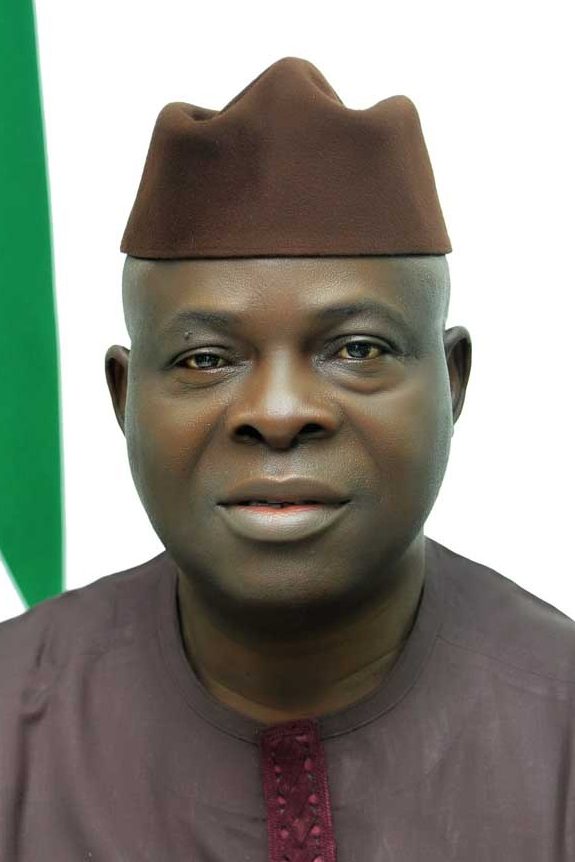
HE Abioye Mohammed Bello: As-Salaam-Alaikum. I have the pleasure to be here this morning to address this very august gathering on Pakistan Nigeria Relations and Future Aspirations. Injustice will be done today if I don’t refer to the very long-standing relations between Nigeria and Pakistan. Nigeria and Pakistan share a lot of commonalities ranging from the time we were under colony of the British and are now members of the Commonwealth. Both Nigeria and Pakistan are members of international organisations which includes the UN, the OIC, etc. In the immediate post-independence era, Nigeria witnessed the presence of many Pakistanis in our country. Since then, the relation between our two countries has grown stronger and stronger. The most important aspect of our relation has been in military cooperation where Nigeria procures a lot of military hardware from Pakistan and a lot of our military personnel have received one training or the other in Pakistan. To cap it all, recently we have procured few fighter jets from Pakistan which has given us a clear advantage in military operations of Nigeria and a lot of material has been purchased by Nigeria from Pakistan to fight the insurgency in Nigeria which has been seriously neglected. Now there is appreciable peace in Nigeria in those areas.
The economic relations in my view are unsatisfactory because the trade between Nigeria and Pakistan has not been that great and is abysmal now and it is up to the two countries to make sure to propel this to a higher level. As a matter of fact, it is my hope that, within the shortest possible time, the trade between Nigeria and Pakistan will rise to billions of dollars in near future that is our plan. With this in mind as the High Commissioner of Nigeria in Pakistan I will pay very serious attention to make sure that trade relations between us will improve to very, very high level. That is why when I came here, I made it a point of duty to talk to the Chambers of Commerce, I visited the Karachi Chamber of Commerce, the Islamabad Chamber of Commerce as well as others. I also visited and talked to the Sialkot Chamber of Commerce, that of Faisalabad, that of Lahore, etc. I am happy to report that during all these consultation and meetings, we have been able to gather a lot of information and a lot of facts and data which will certainly help us to work towards our desired objective. Now I must draw the attention of this distinguished audience to the fact that one of the problems facing us and that has been hindering the achievement of the desired goal, particularly regarding the trade and commerce between the two countries, is the lack of adequate information regarding the potential between us. This needs to be addressed. And that is why I commend the initiative of the Trade Development Authority which is in the Ministry of Commerce here for their very strategic policy which directed the attention of Pakistan or Asia to the situation in the African world. In another area certain hiccups need to be addressed, one issue that needs to be resolved is direct flights between the two countries. In the past I remember PIA used to fly directly to Nigeria but this is no longer the case. There must be direct flights between the two countries. The two countries must work towards putting in place pragmatic policy that will ease the movement of people between the two countries. In this regard we have proposed that either no visa requirement be considered to help movement of people between our countries or visa on arrival be considered for new businesses of both countries. Another problem that we need to address to be able to move forward and help trade and commerce between the two countries is the issue of transfer of money between us which is pretty difficult, you cannot transfer money between the two countries beyond USD 10000, this is abysmally low and you need to have a market system that facilitates easy movement of money for getting business. Another issue which is regarded a Consular issue, I must commend the government of Pakistan who has recently granted our long-standing request to have an Immigration Section and I commend the government for this very very kind gesture. This will be of great help because people were facing a lot of consular problems regarding the issue of passports.
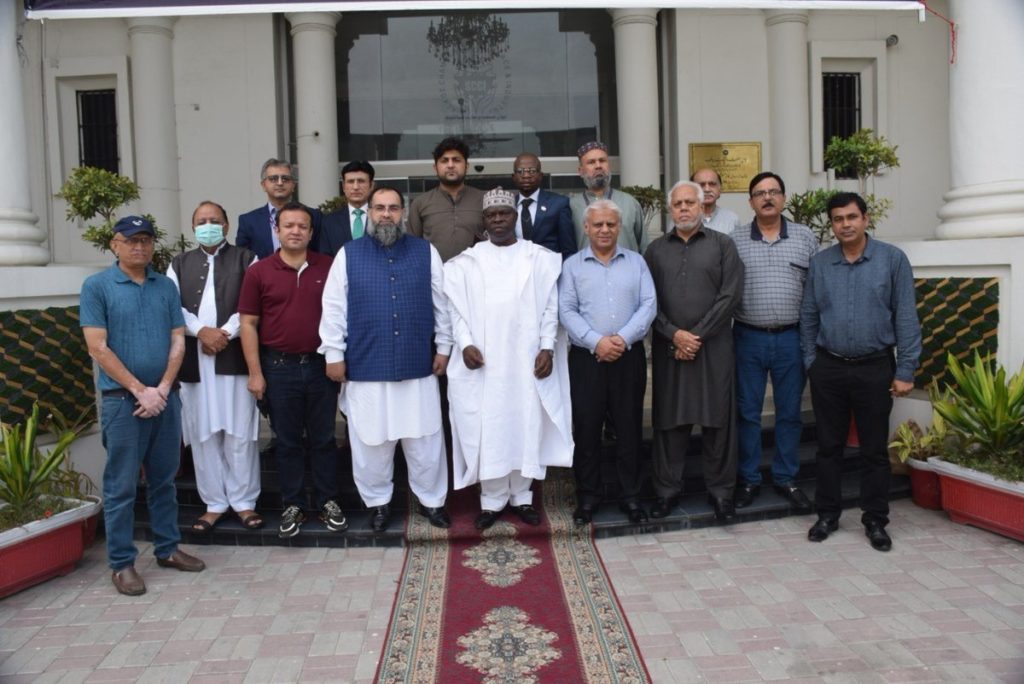
On the foreign relation front I think if the two countries have a very stable social programme because foreign relations are an extension of domestic policy i.e. foreign relations are an extension of what happen inside the country, we are speaking about improvement in trade and commerce, if this happens it will further boost the amicable ties and boost the socio-economic conditions. Well, we have that, we have stability in each of our countries and the issue of our foreign relations will blossom very well. That is why we should be working towards improving the economic and trade relations which is very important. On this note I must not forget to thank the government and people of Pakistan for the hospitality, you have been a very wonderful host to our Commission. We do not have really any complaint of any bad attitude from the government and the people of Pakistan, we have been living here as if in our own country, thank you and God bless you. As Salaam Alaikum.
Commodore (R) Sadeed A. Malik: Thank you very much Excellency. We will now take questions and the first question is regarding trade. What is the volume of trade between the two countries? Which fields of economic activity can we use for mutual trade between Pakistan to Nigeria and between Nigeria to Pakistan?
HE Abioye Mohammed Bello: Yes, I understand the question. There are a lot of things that can be traded between the two countries. We have a lot of minerals like oil and coal, then we have ginger, cashew nuts, cocoa, we have a very robust forestry from where we can get timber that can be used in the furniture industry, there are so many other things. In terms of human capital, we have a large expatriate community including many Pakistanis. From Pakistan we have identified many items that we can get, such as pharmaceuticals, sports and surgical equipment, etc. We can use these in abundance and we have advertised this in our home country which has been well appreciated and I hope in the near distant future we will witness an upsurge of all these commodities between the two countries. Thank you.
Commodore (R) Sadeed A. Malik: Thank you Sir. The next question is from an academic who says there used to be a lot of exchange of students from Nigeria to Pakistan but this appears to have been reduced. Are any steps being taken for admission of Nigerian students into our Science and other universities?
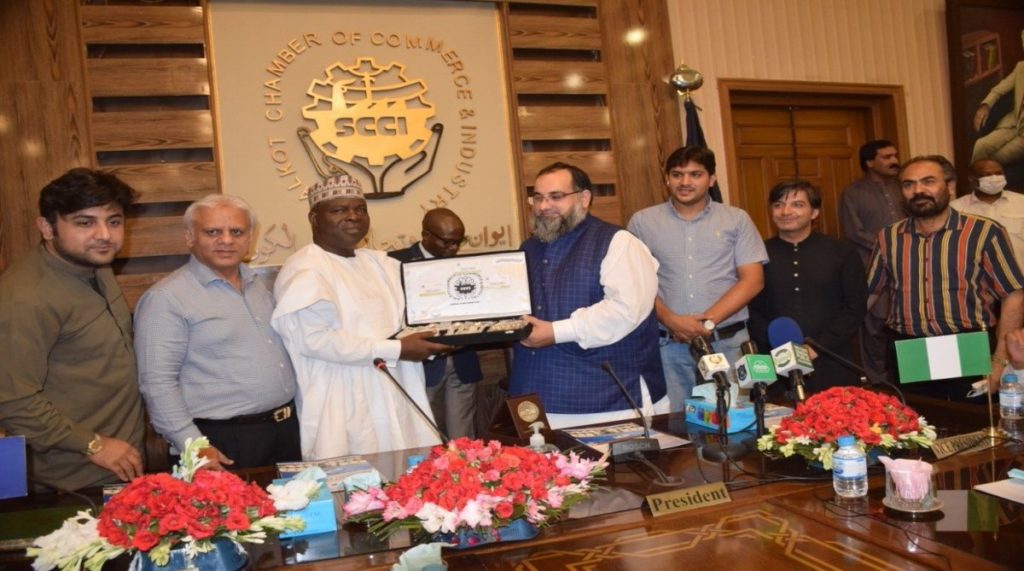
HE Abioye Mohammed Bello: Yes, that is being addressed. But one of the issues for our students is that it seems to be discouraging people, you see movement between Nigeria and Pakistan is quite difficult, if you are coming from Nigeria to Pakistan you have to first come to Doha or Turkey, it is quite difficult. It now takes three days to come to Pakistan from Nigeria. Number two, is the language problem, at times they are teaching in Urdu instead of English, we do not understand Urdu and they have complained about that. English is the medium of instruction here in Pakistan. On your question about the drop in number of students from Nigeria to Pakistan I have highlighted some issues which will have to be corrected by the Pakistan side.
Commodore (R) Sadeed A. Malik: Thank you Sir. Dr. Shehzad Arshad who is a member of our Board of Governors would like to ask a question.
Dr. Shehzad Arshad: As Salaam Alaikum. I am Dr. Shehzad Arshad. I am one of the members of the Executive Committee of KCFR, I am the sitting Chairman of Pakistan Cotton Fashion and Apparel Manufacturers and Exporters Association and I am the former Chairman of the standing committee on textiles and processing. I myself am associated with textile industry and am running a textile mill for the last five decades. We do understand Excellency that Africa is a big potential space for the future of textiles and some of our members are interested in setting up textile units in Africa, Nigeria seems to be one of the most potential places. Excellency my question to you is: Is there any Trade development authority in Nigeria that can help, guide or assist us in establishing a textile unit in Nigeria?
HE Abioye Mohammed Bello: Thank you. Pakistan textile industry has developed greatly from whatever I have seen and I believe that this is one of the areas where we believe where Pakistan and Nigeria can cooperate because we have a lot of textile industry that has become moribund in Nigeria, which is begging for attention. My High Commission has been discussing it and this is one of the areas we have to look at, to take the Pakistani experience to rejuvenate the textile industry in Nigeria. So what we have said is entirely about what we are thinking, I can assure you that your intentions will receive adequate support by the people and government of Nigeria. On this note I want to assure you of all support for any Pakistani industrialist wanting to invest in Nigeria, the climate is quite conducive, Nigeria is very peaceful and investment friendly. Thank you.
Commodore (R) Sadeed A. Malik: We have a question from Mian Mehmood who is a member from our Lahore chapter. Mr. Mian Mehmood.
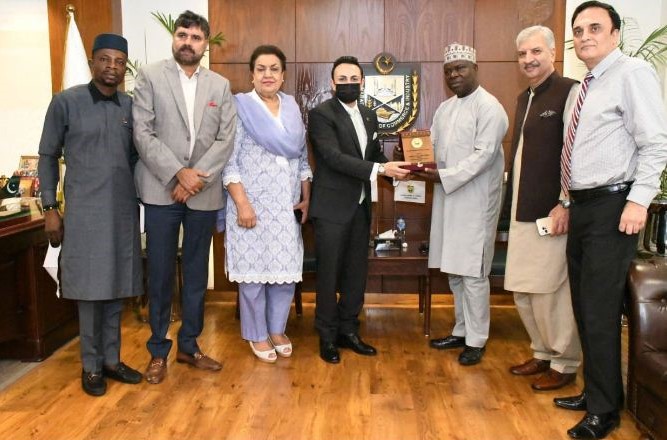
Mr. Mian Mehmood: As Salaam Alai Kum Excellency and a very good morning to you. I have a very important question. You are like my brother, the pharmaceutical industry is a very progressive one in Pakistan but the Nigerian government is not helping at all the pharmaceutical industry of Pakistan to register their products in Nigeria. To get benefit from your presence we are requesting you to please talk to your government to enable this progressive industry to export our products to Nigeria which is a very lengthy procedure. So this is very urgent and we need your help. Thank you very much.
HE Abioye Mohammed Bello: Let me assure you that we will talk to the appropriate people and look into it as much as we can. You will appreciate that the approving authority in Nigeria has to maintain certain standards. Your point is well noted and we will talk to the concerned department.
Commodore (R) Sadeed A. Malik: Another question has just come up about both Pakistan and Nigeria having beautiful tourist destinations but there is not much exchange of tourists between the two countries. Would you like to comment on this, Sir?
HE Abioye Mohammed Bello: There are very rich investment opportunities in tourism and anyone who wants to invest in tourism in Nigeria will not regret it. The same thing is true of Pakistan in the area of tourism. It will be good idea to arrange a tourism exhibition whereby the potential of the two countries can be truly gauged.
Commodore (R) Sadeed A. Malik: Now if there are no more questions, I would like to request our Chairman for his concluding remarks. Mr. Chairman, Sir.
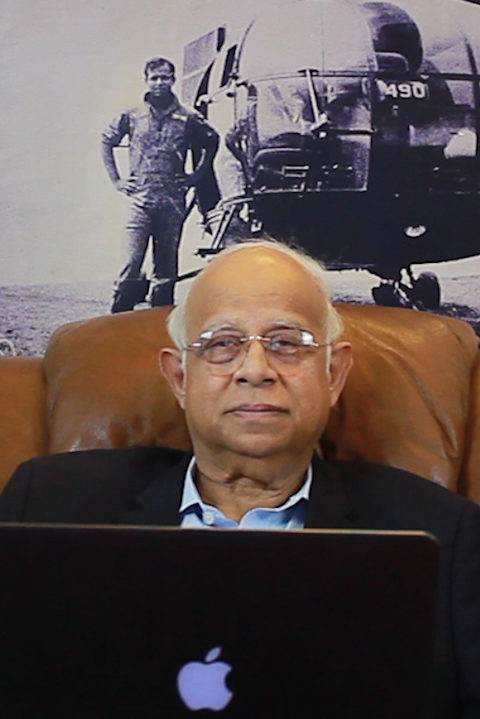
Ikram Sehgal: Thank you Cdr (R) Sadeed Malik. Excellency, it has been refreshing to listen to your very candid and forthright talk from you and I am sure it has educated a lot of people about Nigeria. As you have said we have a long history with Nigeria, it was not yesterday, I would like to say “It was day before yesterday that we started.” One of my best friends that I made 57 years ago when we were in the Pakistan Military Academy together and his name was Brig Gen Abba Kyari who died recently. So we were in the PMA together as cadets 57 years ago as best friends. We remained friends and he was commanding the 5th Battalion at Kano and we were in touch with each other and used to correspond with each other, so I know Nigeria, Excellency. Whenever you have a longstanding friend and we talk to each other and we talked to other people and as you know Abba was also the principal staff officer to the President of Nigeria. Excellency you are very right, we must build up this relationship, we just cannot keep a status quo, we must build up a relationship across a broad spectrum. Today people have stressed upon trade, tourism, culture, education, whatever we can because both, as you know, are English speaking people, in that sense we can talk and understand each other. We need to have a lot of exchange, we can do a lot in the IT sector and as you know Pakistan is into Financial Inclusion where 80% of our population is without bank accounts and almost the same thing exists in Nigeria. We are doing something with the help of the World Bank and our State Bank is launching an Asaan Bank Account scheme or Easy Bank Account scheme where you can open a bank account in less than two minutes. And that is the sort of route that we can take, help each other out. I look forward Excellency to interaction with you, let us not confine ourselves to this one talk, we need to have more talks with somebody like you that we respect and respect your views and we look forward to keeping this relationship going. Thank you.
Commodore (R) Sadeed A. Malik: Thank you very much Sir and thank you Excellency, it was wonderful hearing you, listening to you and of course, our members who asked questions of you, they shall follow it up with you. Thank you everyone. May I have the Chair’s permission to conclude the meeting?
Ikram Sehgal: Please do so.
Commodore (R) Sadeed A. Malik: The webinar is hereby concluded.


